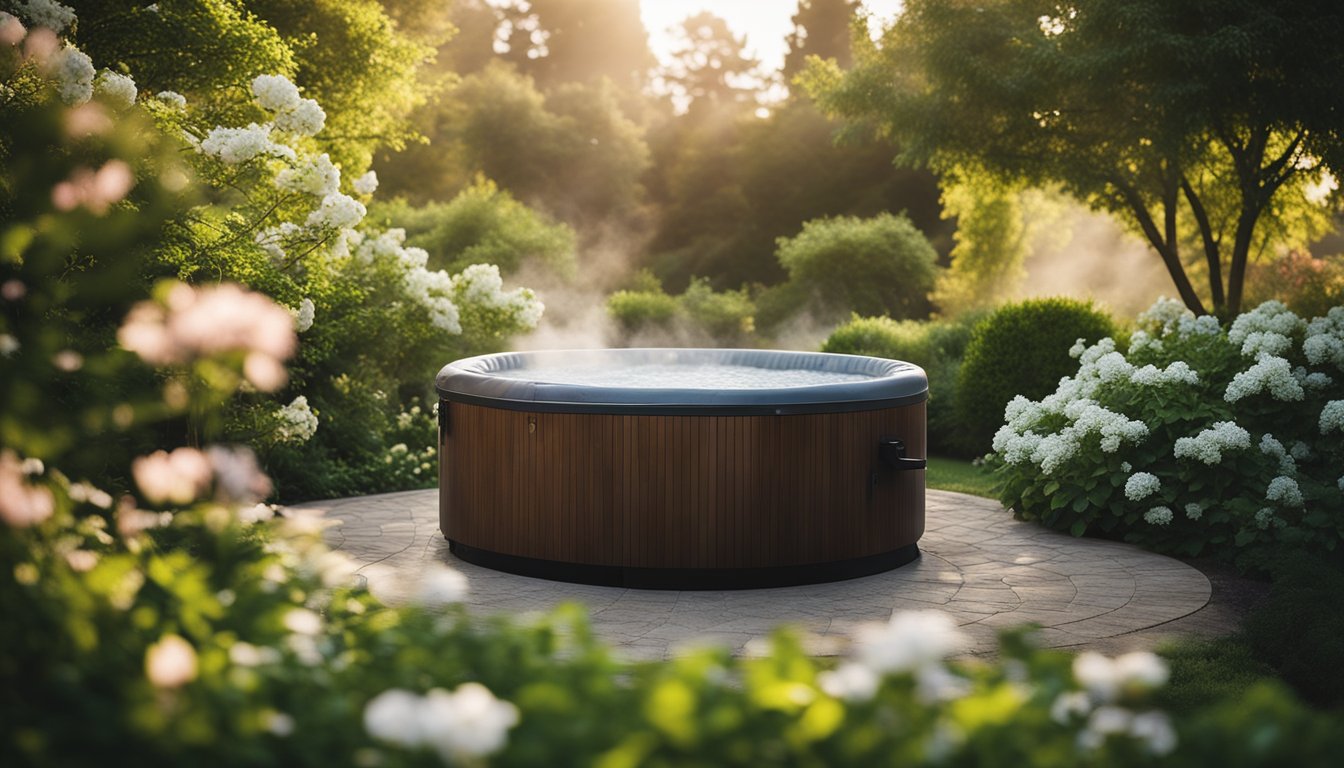Late updated: 09 Aug 2024 08:08
Written by: James Whitaker
Health Benefits Of Hot Tubs For Daily Stress Relief: Effective Relaxation and Well-being
Imagine a sanctuary in your own home where the stresses of daily life simply melt away. For many, a hot tub offers this respite, a blend of warm water and calming jets designed to soothe both body and mind. It is well-known that regular hot tub use can significantly reduce stress levels, providing a much-needed escape from the constant pressures we face.

In addition to stress relief, hot tubs offer a variety of health benefits that can enhance our daily routine. The relaxation of tense muscles, relief from joint pain, and even improvements in blood pressure are just some of the positive effects. The warm water encourages circulation and helps to stabilise blood pressure, which can immensely contribute to overall well-being.
Moreover, incorporating hot tub sessions into our daily lives has benefits beyond the physical. The mental clarity and relaxation achieved can lead to better sleep and a more positive outlook. As we continue to explore these benefits, it's clear that hot tubs are not just a luxury but a valuable tool for improving daily health and reducing stress.
Key Takeaways
- Hot tubs offer significant stress relief.
- Regular use can improve physical health and daily well-being.
- The mental benefits enhance sleep and overall mood.
Exploring the Health Benefits of Hot Tubs
Hot tubs offer numerous benefits for mental and physical health, making them a valuable addition to any wellness routine. Regular use can promote relaxation, reduce stress, and provide therapeutic effects for various conditions.
Promoting Relaxation and Mental Health
Hot tubs are excellent tools for stress reduction. The warm water helps relax the body and mind, making it easier to unwind after a long day. The buoyancy reduces the strain on joints and muscles, providing a sense of weightlessness and calmness.
Mentally, hot tubs can reduce anxiety and depression symptoms. The soothing environment encourages mental clarity and emotional health. Additionally, the act of soaking can increase endorphin levels, which are natural mood boosters. These benefits collectively improve overall mental health.
Physical Therapeutic Effects
The physical benefits of hot tubs are extensive. Immersing oneself in warm water promotes improved blood flow and circulation, which helps deliver oxygen and nutrients to injured tissues. This facilitates quicker recovery and pain relief.
For those with conditions like arthritis or fibromyalgia, hot tubs offer significant relief. The heat and buoyancy reduce stiffness and joint pain, improving mobility. Athletes also benefit from reduced muscle soreness and faster injury recovery, making hot tub therapy a versatile option for various physical ailments.
Incorporating Hot Tubs into Wellness Routines
Integrating hot tub sessions into daily life can enhance overall well-being. Establish a routine where you soak for 15-30 minutes each evening to capitalise on the relaxation benefits before bed, aiding in better sleep quality.
For those interested in holistic wellness, combining hot tub use with practices like aromatherapy, meditation, or even light stretching can maximise benefits. Ensure water quality is maintained and consult a healthcare provider to personalise the routine, especially if dealing with specific health issues.
By incorporating hot tub use into our routines, we can enjoy not only a private retreat but also substantial improvements to both mental and physical health.
Frequently Asked Questions

Daily sessions in a hot tub can offer an array of health benefits, from treating skin conditions to enhancing mental health and aiding post-exercise recovery. Below, we answer some common questions related to these advantages.
What are the potential advantages of using a hot tub for skin health?
Using a hot tub can aid in cleansing the skin by opening up pores and promoting better blood circulation. The warm water helps to soften the skin and remove impurities, potentially reducing acne and other skin conditions. We find that regular soaking may improve overall skin tone and texture.
Can regular use of a hot tub have positive effects on mental wellbeing?
Absolutely, hot tubs are beneficial for mental health due to their stress-relieving properties. The combination of warm water and jet massage promotes relaxation. This can reduce anxiety levels and improve mood by triggering the release of endorphins, our body's natural feel-good chemicals.
How does immersion in a hot tub benefit post-workout recovery?
Hot tubs are excellent for muscle recovery after a workout. The heat helps to relax muscles and improve blood flow, which can reduce muscle soreness and stiffness. This relaxation aids in faster recovery, allowing us to maintain a consistent exercise routine without prolonged discomfort.
Are there cardiovascular benefits associated with hot tub use?
Yes, soaking in a hot tub can have cardiovascular benefits. Warm water immersion can lead to improved circulation and reduced blood pressure. It causes blood vessels to dilate, which enhances blood flow and can lower strain on the heart. It's a gentle way to support cardiovascular health without vigorous exercise.
What medical benefits, if any, can be derived from daily hot tub sessions?
Daily hot tub use can offer various medical benefits such as alleviating chronic pain, reducing arthritis symptoms, and enhancing sleep quality. Warm water therapy can soothe joints and muscles, making it beneficial for conditions like rheumatoid arthritis. Additionally, the relaxation effect may contribute to improved sleep patterns.
How does combining a Jacuzzi with sauna sessions enhance overall stress relief?
Combining hot tub sessions with sauna use maximises stress relief by harnessing the benefits of both heat therapies. The hot tub relaxes muscles and calms the mind, while the sauna helps to detoxify the body and improve circulation. Together, they provide a comprehensive approach to reducing stress and promoting overall wellbeing.
